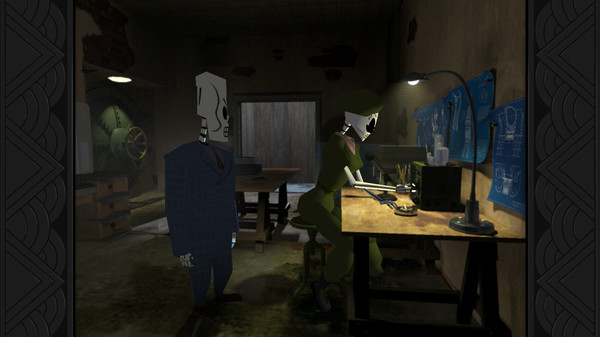

The game had a wholly original, irresistible aesthetic. Depicting the afterlife of Aztec folklore, infused with a jazz-era soundtrack and populated by characters straight out of a Raymond Chandler novel. Cannily melding the 3D engine of Jedi Knight: Dark Forces II with beautifully illustrated pre-rendered sets, Fandango’s designers were able to create a stunningly unique and absorbing game world. Developed over a three-year period, Fandango had been conceived and driven by Full Throttle-visionary Tim Schafer (he of later Psychonauts fame) as a further evolution of the genre on both technological and stylistic fronts. Released in October 1998, Grim Fandango was to be LucasArts’ final foray in the adventure game genre that it had perfected. I didn’t know it at the time but I was about to discover my favourite video game.
#Grim fandango remastered glitch beaver install
Returning from my family’s annual West Country jaunt the next day, I raced upstairs to install the demo of the cryptically titled Grim Fandango. Somewhere between the Zone’s endorsement, the fact that it was a new LucasArts title and this intriguing depiction of death’s beckoning hand seized my 11-year-old self’s gaze.

Clad in his reaper cloak, Manny adorned the front of PC Zone‘s cover-disc, under the tantalising offer to ‘be the first to play LucasArts’ fantastic new adventure’.

I first met Manuel Calavera in a small Cornish newsagent.


 0 kommentar(er)
0 kommentar(er)
